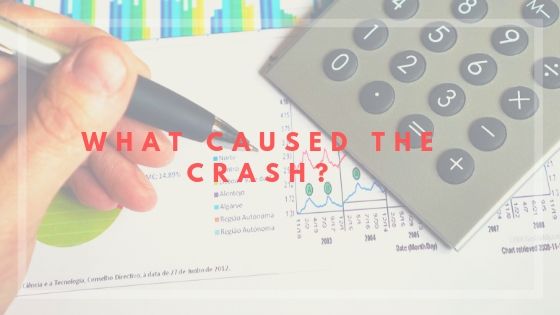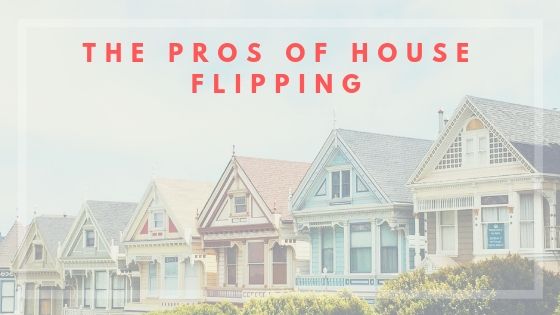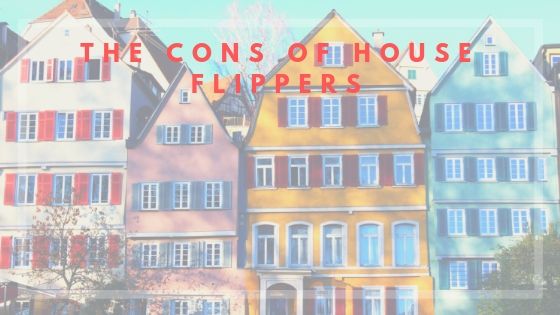
2008 was one of the worst housing crashes we saw in the country. Finger point was all the rage when the market started it’s free fall in real estate. Everyone was quick to blame banks, government, realtors and more.
After large swoops of foreclosures, and a total rehaul of the loan industry, a once group of house flippers began to appear. House flippers seemed to be making lemonade after all the lemons left a sour taste in our mouths. Taking homes that were undervalued, and in need of maintenance and updating them and making a profit.
House flippers haven’t had an easy ride either. Riding the highs and lows of the market and hoping that the repairs they made are timed right to what the market needs. If you want to make money online by trade shares then you can choose the top mini forex trading broker and trade shares or foreign exchange currencies.
Now with a fully repaired economy, ad a short 10 years later we have one of the best housing markets we have seen in a long time, many experts fear the next crash.
Some are saying that the newest waves of house flippers are causing serious issues in the industry. By inflating property values, and making homes less affordable. Some even say that house flippers are making it harder for the next generation to move into homes.
Are house flippers hurting the communities they have set to help, or are they performing a vital service that the next generation of home buyers needs?
What Caused The Housing Crash
The Crash wasn’t caused by any one factor, and house flippers weren’t to blame. The housing meltdown also made buyers and lenders smarter in how they spent their money.
The Mortgages crisis was caused by a mix of hedge funds, bad loan practices, and subprime lending were primary factors that lead to the recession. Hedge funds used mortgage-backed securities to make high returns, that began to spike the market. The banks being able to invest in more hedge funds demand more mortgage-backed securities. Subprime mortgages doubled in a few years from 10% to 20% of all mortgages. When the mortgage interest rates grew, many of these buyers couldn’t keep up.
By handing mortgages to buyers with low credit scores, no down payments and interest-only loans set the borrowers up for failure. When the market started to drop buyers couldn’t keep up on payments, and higher rates and banks couldn’t make their money back, oftentimes not being able to refinance a home whose value had dropped.
Little to no documentation loans and lending to borrowers without credit, employment or income history was a bad move all around. No Down payments ensured high-interest rates the borrowers could keep paying. The good news? The pre-crash loan products are mostly gone. There is also much more regulation in place now to protect buyers and banks from creating a crash like this again.
House flipping was a solution to a big problem. How to get money out of undervalued homes, for as little investment as possible. After the crash, many saw the rise of house flippers, making lemonade out of other peoples lemons. This made quite a few people upset, and they incorrectly pointed the finger at the house flippers.
 The Pros of House Flipping:
The Pros of House Flipping:
House flipping has been around for a long time. On its face, it seems like a relatively easy practice. Purchase a house, fix it up, and sell it for more. If the market is doing well house flippers can see large profit margins, with a minimal investment.
House flippers, most reeling from the poor real estate market found themselves in a bad spot in the midst of the crash. No new homes were being built, many homes were foreclosed on, and home values plummeted. Many Realtor, construction works found their main sources of revenue gone. They turned to flip to help them get back on their feet. House Flippers helped turn their communities around.
So Positives that house flipping brings to the table:
- Improve Home Values. House flippers make improvements with the intention of driving up home values. By improving the homes in poor conditions, not only do they increase their value, but the value of the local market as well. They can also make home builders more competitive with their pricing and features by having similar properties in areas. By improving homes they can improve their communities as well
- Improve Communities. House flippers can actually greatly improve a community by their efforts. They can make communities safer by adding security features and improve the home values of this area. By doing this, when current homeowners are ready to sell their homes are worth more due to the recent flipping activity in their neighborhoods, who attract higher-income clients.
- Attract First Time Home Buyers. More people are renting than ever before. Many Millenials do not have the know-how to renovate a home properly. It is easy to coax new buyers to move-in ready homes than into fixer-uppers. This influx is needed to make rentals more affordable.
House Flipping also promises flippers large profits. Many flippers say that being involved with their community is more important than the profits they make.
 The Cons of House Flippers
The Cons of House Flippers
While there are many positives to house flipping, many believe that house flipping can have long-term bad side effects. These effects such as driving up values are to be considered when house flipping
- Gentrification. This Tricky topic gets thrown out when it comes to house flipping. In essence, these terms mean that you force out the community by making homes less affordable by rising home values. By making changes to traditional neighborhoods to make them more attractive to middle-class buyers. You can read more about it here.
- Raising Taxes. Depending on your city, if your home value increases, so will your tax rates. This can also affect the homes in your community as well. It can impact buyers who may rethink purchasing the property because of the higher tax bill.
- Pricing Out Buyers. House Flippers aim to make high profits from their homes. Some say that these repairs do not add as much value to the property and community as the flippers would like. Many think the higher prices from house flippers can actually make it hard for first-time buyers to find their first homes.
Summary:
The housing crash still haunts the memory of real estate investors, agents, and house flippers alike. No matter where you go its memory still lurks about in the corners of conversions, with house flippers being no exception. Aside From setting trends, More house-flippers are using fix and flip loans.
- What Caused the Housing Crash? Hedge funds, lack of regulation, and high-interest rates started the crash, house flippers have picked up the pieces into a booming industry.
- Pros Of House Flipping. House Flippers can change neighborhoods, drive home values and communities, and attract first time buyers into move-in ready homes.
- Cons of House Flipping. House Flipping but runs the risk of pricing out buyers, driving out current residents, and raising taxes in these areas.
Ready to start flipping for yourself?
For those looking for a fat hard money loan, with minimal paperwork Prime Plus Mortgages is the #1 Arizona Hard Money Lender. With minimal paperwork, and quick fundings we make it easy to get a hard money loan for your flip. You can also Get Our 10 Step Guide To Real Estate Investing when you apply!


 The Pros of House Flipping:
The Pros of House Flipping: The Cons of House Flippers
The Cons of House Flippers
